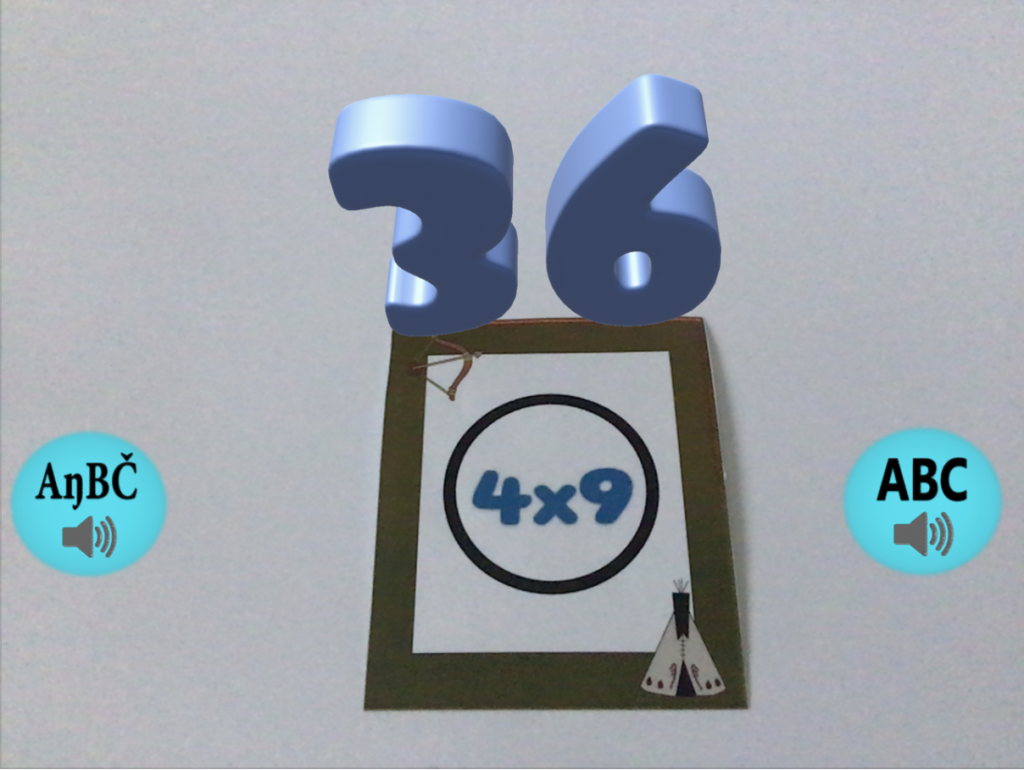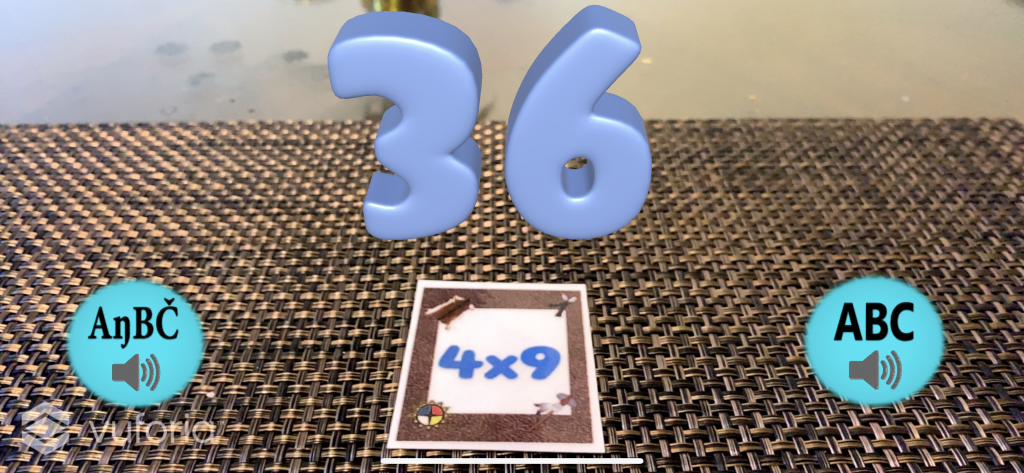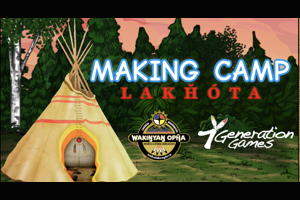TL; DR Our app gave the correct answer 99% of the time. So we spent days creating a new app to teach multiplication in English and Lakota that is 100% accurate.
Dennis wrote a script to check the answer produced when you hold the phone over one of the cards in our app Math: The Universal Language Lakota. It gave the right answer 263 times. The problem was 4 x 9 and the answer was 36. Two times, it gave an answer of 24. Astute readers realize that this is the answer to 4 x 6. The iPad was confused.
Whether teaching math, teaching kids about technology or making an augmented reality app, there are some lessons here.

A phone / tablet camera works a lot like your eyes.
I was in the computer lab in a school when I first saw it. When I held the phone over the 4 x 9 card and the answer “36” popped up. When we tried this in the office several times, we kept getting the right answer.

Then Diana (or maybe it was Daniel) had the problem again. Instead of on a desk, she put the card on a pile of papers on her desk that were covered with numbers. Some of the time, she got a 24 instead of a 36.
Here is what we figured out, which is obvious in retrospect.
- If you have dim light, the answer was wrong more often. Just like your eyes, it’s harder for a camera to “see” what’s there if there isn’t enough light.
- The camera is more likely to “see” the wrong image on a cluttered background. Think “Where’s Waldo”. When you have a very cluttered background, it’s hard to find Waldo. If you had Waldo on a plain white piece of paper, it would be very easy.
- If you have a low quality camera, the problem will be wrong more often.

We still wanted to have 100% reliability because we want students who are learning multiplication to only see that 4 x 9 = 36 and not see some other answer 1% of the time. So, Dennis, who gets kudos here, spent days re-writing the code using a new technology that wasn’t available a year ago when we made the first app, and creating new cards. Now, you get the correct answer all the time, if you use the new Math: The Universal Language Lakota NT app on your iPad.
Daniel stands up for the other 5%

Daniel, our country manager for Latin America, pointed out that not all schools can afford iPads. A lot of people use Android phones and tablets and the technology we used for the new app would require the Google ARcore for Unity which only works on the newer devices. Now, most of our users have iPads, Chromebooks or Windows computers. However, there is that 5-7% that are using our games on Android devices.
Daniel pointed out that those people are more likely to be at lower income schools and more likely to be in Chile than in the U.S. Being a patriotic Chilean (¡Felices fiestas patrias, Daniel!) he wanted to make sure we maintained a solution for those schools. So, our solution was to maintain the old Math: The Universal Language Lakota AR app for now in the Google Play store. Aaron is working on a new set of cards for that to increase the reliability and if you are using it, just remember to put the cards on a plain surface and bright light (normal classroom lighting should be fine).
So, if you have an iPad, we have a 100% reliable app for you to teach multiplication using augmented reality.
FACT: Everything is not going to run perfectly on the cheapest possible device.
There is a reason those devices are so cheap. If you have a lower end device, just like if you have poor eyesight, it is not going to be 100% accurate but we are working at getting better than 99%. This was our compromise because the other option was to say, “Guess you can’t use augmented reality for this purpose. Sorry you don’t have more money.”
Yes, there will be a Math: The Universal Language Lakota NT out for Google Play soon. Yes, there will be a new version of Math: The Universal Language AR for iPads within the next week or two.

Yes, Making Camp Lakota runs perfectly on Android and iPad as well as on the web.
Any other questions? Post in the comments below or email info@7generationgames.com

Some great insight here! Accessibility from a hardware perspective should be discussed far more often than it is. And accessibility from a privilege standpoint should be shouted from the rooftops on a constant basis!
Do you and Daniel have preferences for any specific organizations that help get capable devices into the hands of students who could benefit from them? I’d love to start promoting the heck out of them. (And as always, keep up the phenomenal work 7gen team!